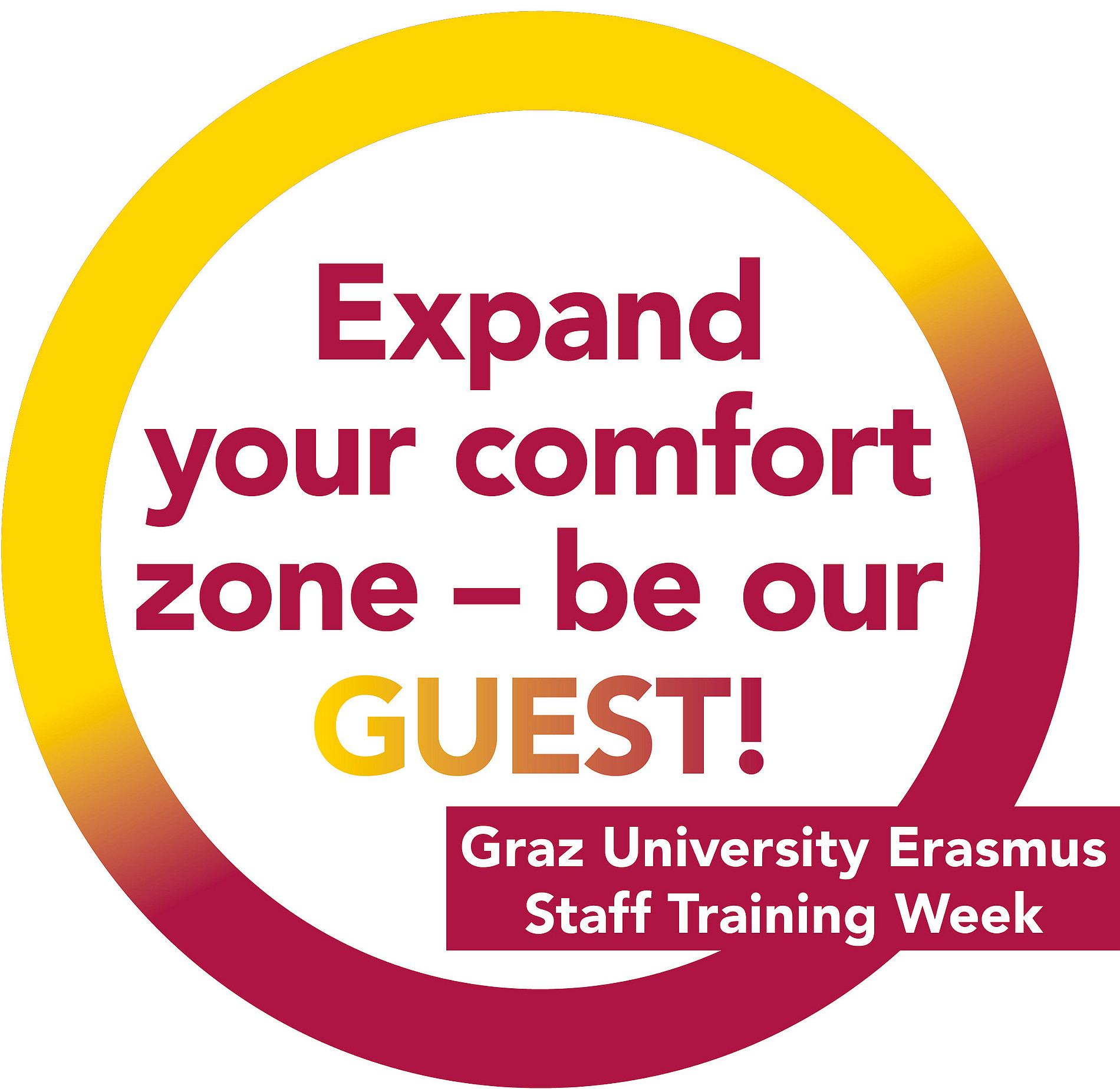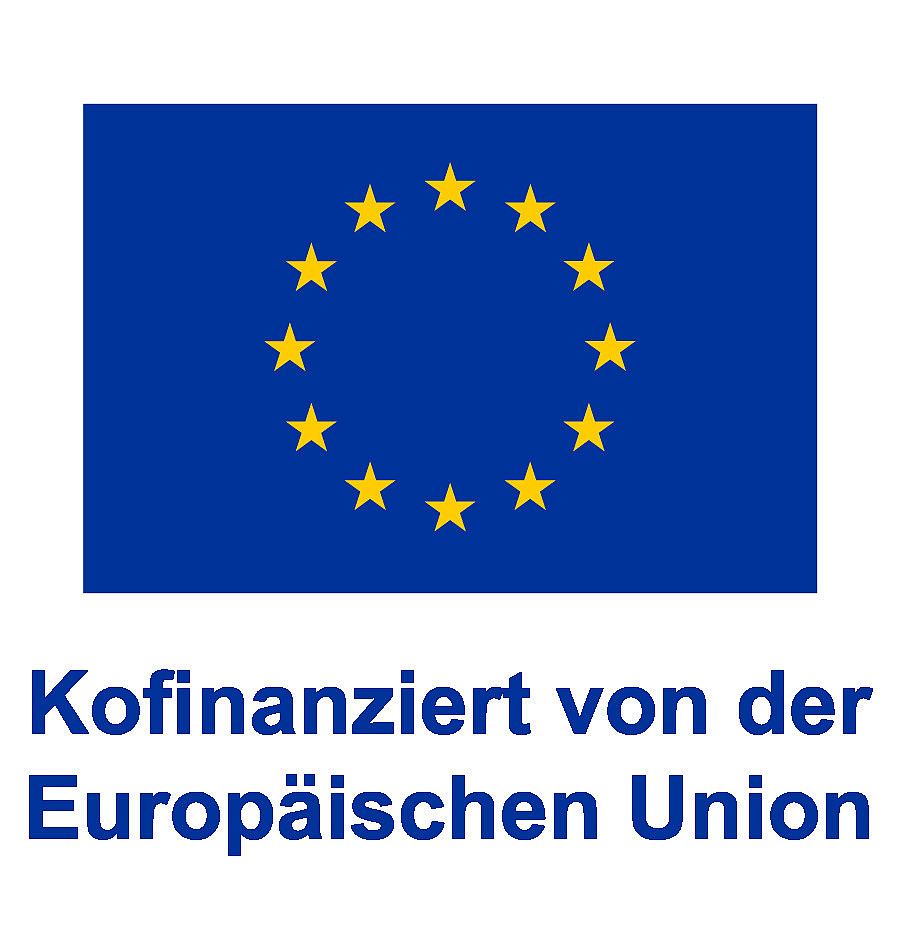We are looking forward to meeting you at our upcoming Graz University Erasmus Staff Training (GUEST) Week!
The GUEST Week provides a platform for exchanging experience, sharing good practices and creating new ideas. Its programme offers different formats, including information sessions, workshops and round table discussions. The staff training week will not only support the transfer of knowledge but also the strengthening of existing and creation of new cooperation links.
The participants are invited to contribute their own good practice examples related to the topics of the programme.
Please note: We organize a staff training week every other year.
The next GUEST Week will take place from November 24, 2025 till November 28, 2025.
General Information
When and where does the GUEST Week take place?
- We host our GUEST Week biennially. Our next GUEST Week is between November 24, 2025 and November 28, 2025.
- It will take place at the University of Graz, in Graz/Austria (google maps).
Who can apply?
- Our programme addresses staff members from different administrative units. In 2025, the following administrative units at the University of Graz will open their doors to host colleagues, network, and exchange good practices:
- Department of Academic Services and the Competence Centre for University Teaching
- Performance and Quality Management
- Research Management Office
- treffpunkt sprachen - Centre for Language, Plurilingualism and Didactics
- Human Resources Department
- University of Graz Library
- Office of International Relations (IRO)
Where can I find the programme for the GUEST Week?
Our staff week includes different formats, such as information sessions, workshops and good practice examples. Here you can take a look at the preliminary programme of our upcoming GUEST Week.
When can I apply?
- The application period is now closed. Our next GUEST Week is taking place in 2027.
- Our Data Protection Declaration can be found here.
What does the GUEST Week cost?
- There is no participation fee. Participants are encouraged to apply for Erasmus+ Staff Training grants at their home universities.

Anja Krobath MA BA BA
Schubertstraße 23/II, 8010 Graz
Telefon:+43 316 380 - 1252
E-Mail:staffmobility(at)uni-graz.at
Participating units at Uni Graz
The general mission of the Office of International Relations is to promote a process of internationalization at the University of Graz. The Office develops and co-ordinates activities and programmes to enhance the mobility of students and staff members. It serves as an information centre for international relations matters and links the university to institutions of higher education world-wide.
This year’s GUEST Week will offer ample opportunity to exchange good practices on topical issues in the internationalization of higher education. We will both reflect on the current Erasmus+ programme period and also look ahead on what’s to come. There will be sessions on the Future of the Erasmus+ Programme, on Inclusion Initiatives, on Erasmus+ Blended Intensive Programmes, and Erasmus+ KA171, for example.
- The Department of Academic Services is related to the Vice Rector for Study and Teaching. We focus on high quality teaching and learning experiences and support both teachers and students. With our offerings we reach out to prospective students, students during their studies as well as teaching and administrative staff. Please also visit the homepage we maintain Studying at the University of Graz
- The Competence Centre for University Teaching is related to the Vice Rector for Study and Teaching. Our topics are Teaching and educational design at the University of Graz. Our goal is passing on knowledge on educational design and supporting teachers in their work as well as in the development and expansion of their teaching competence. Please also visit the homepage we maintain Teaching at the University of Graz
The University of Graz and its library belong to Styria's most important cultural and educational institutions. It is a library with universal standards, scientific orientation, and a social function. Our mission and strategy as a modern library is to make knowledge publicly available. The library provides research support services and resources for the academic staff at the University of Graz. As a "hybrid library", we enable access to electronic resources as well as conserving and preserving printed literature and our special collections. Our main tasks for future development are preserving the cultural heritage of our region while maintaining sustainability and open access in a digital society.
In 2025, the focus of the GUEST week's library track is on the following 3 areas:
- Publication Services:
The library department Publication Services provide information and support on a wide range of topics pertaining to scholarly communication. Its portfolio of topics for personal consultations and regular workshops includes: open access, funding, visibility and bibliometrics as well as quality aspects in scholarly publishing, including Predatory Publishing.
- The Department of Special Collections:
It is divided into several departments: Styria’s Documentary Heritage, the Centre for Digitalization, Conservation and the Centre for the Study of Printed and Written Heritage. Their mission is to provide, preserve and maintain access to the special collections and cultural heritage of the region through their various subdivisions and research areas. A recent scientific discovery by conservator Theresa Zammit Lupi was an Egyptian papyrus fragment in the Special Collections which is 400 years older than the earliest known books to date. The find challenges the currently accepted timeline of book history.
- The Management of Electronic Resources: How the Kooperation E-Medien Österreich (Austrian Academic Library Consortium) manages Electronic Resources
Electronic resource management (ERM) comprises the practices and techniques used by librarians to track the selection, acquisition, licensing, access, maintenance, usage, evaluation, retention, etc. of a library's electronic information resources. In Austria, scientific libraries negotiate and administrate the acquisition of large databases and extensive Read and Publish Deals together in consortia within the Austrian Academic Library Consortium (KEMÖ).
At the Performance and Quality Management, we support the overall development of the university – an exciting and enjoyable task!
Our expertise is based on in-depth analysis, international exchange and many years of experience.
We develop recommendations, gather and evaluate information for the development of strategic goals, and support management decisions. We enjoy thinking outside the box, and we stand firm on important matters, even when it gets uncomfortable. We are actively involved in developing a culture of quality and performance. Collaboration with the various units of the university is very important to us.
The Research Management Office is the contact point regarding research at the University of Graz. Research Management office provides a comprehensive range of services concerning research funding, project management and financial management of research projects, the preparation of contracts as well as technology and knowledge transfer. Furthermore, it offers support to University’s Fields of Excellence.
treffpunkt sprachen – Centre for Language, Plurilingualism and Didactics makes it possible to bundle all the language-related activities and course offerings of the University of Graz and to optimize the resulting synergies. The cross-faculty centre acts as a meeting place for all those interested in languages and as a hub for language policy, language documentation and language didactic initiatives. The centre’s twin focus on teaching and research is a result of its close ties to the university. The wide range of courses includes language and specialized courses as well as the training and certification of language teachers. In the field of research, treffpunkt sprachen is responsible for initiating and developing research cooperation within the university as well as with external institutions and carrying out bilateral research projects, thus contributing significantly to increasing plurilingualism in Austria. The departments of teaching (language courses) and research (plurilingualism and didactics) will open their doors to interested incoming staff members.
The HR department is the central point for all relevant information about staff members' employment contracts with the University of Graz. We regard it as our responsibility to accompany members of staff in all work-related questions. An extensive range of services is available to all employees.
HR development and management also are part of the HR department. By targeted development of leadership courses and training in different contexts, we make a major contribution to motivating our members of staff.
In addition to personnel administration, there are other areas in personnel and organizational development that support individual employees in their careers and accompany the organization as a whole in change processes (e.g.: onboarding, continuing education, leadership development, dual career service, new working models, counselling).
Von der Europäischen Union finanziert. Die geäußerten Ansichten und Meinungen entsprechen jedoch ausschließlich denen der Autorin oder des Autors bzw. der Autorinnen oder Autoren und spiegeln nicht zwingend die der Europäischen Union oder der OeAD-GmbH wider. Weder die Europäische Union noch die OeAD-GmbH können dafür verantwortlich gemacht werden.
